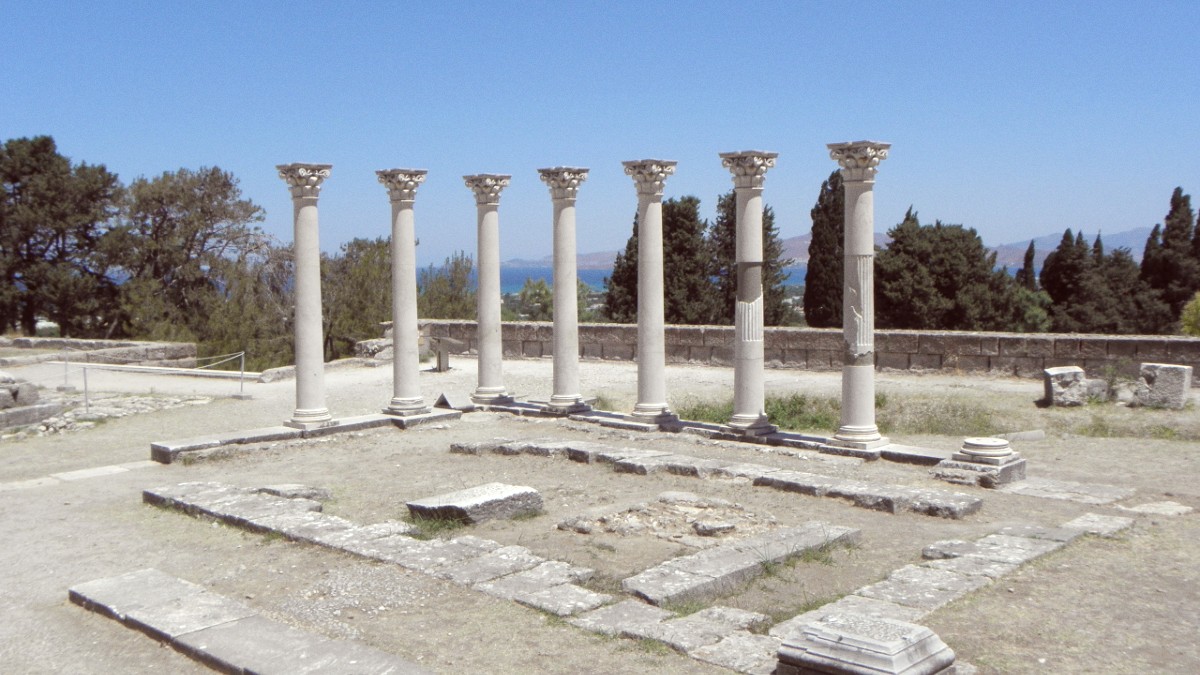
Dodecanese, Greece
Wetlands like Lake Psalidi are important bird habitats. Sea turtle nesting sites on some beaches have protection efforts. Respect marked areas and seasonal restrictions.
Recycling bins for plastic, paper, and glass are increasingly available. Minimize waste by using a reusable water bottle and shopping bag. Dispose of waste responsibly.
Water is a precious resource on islands, especially in dry summers. Practice conservation by taking shorter showers, turning off taps, and reusing towels. Report leaks.
Consider contributing to carbon offset programs for flights. Choose eco-friendly transport options on the island.
Choose sustainable outdoor gear and reusable products to lower your waste generation.
When booking tours, inquire about their environmental policies and their commitment to sustainable practices.
Actively support local conservation organizations and initiatives on the island.
Bring your own reusable water bottle and shopping bags. Choose products with minimal packaging.
Seek out businesses committed to sustainability. Ask about their green policies and local sourcing.
Cultural sensitivity makes for respectful and meaningful interactions with Kos's local community.
Dress modestly when visiting religious sites. Be polite and patient. Embrace the "siga siga" (slowly, slowly) pace of local life.
Be mindful of people's privacy. Avoid photographing residential areas without explicit permission. Respect "no photography" signs in museums or churches.
Maintain silence or hushed tones inside religious buildings. Show respect for services, rituals, and sacred items. Do not touch artifacts or icons unless permitted.
Support initiatives to preserve historical sites, traditional architecture, and local customs. Participate in cultural events with appreciation.
Use "Yia sas" for formal greetings. A handshake is common for new acquaintances.
Smoking is prohibited in indoor public places. Respect any signs.
Sharing dishes is a common practice, fostering a communal meal.
A respectful approach to local customs and traditions will enrich your visit to Kos and foster positive interactions with residents.
Responsible travel on Kos means supporting the local economy and avoiding harmful practices.
Dine at family-run tavernas and stay in locally owned guesthouses. Buy from artisan shops rather than large chains.
Look for handicrafts and produce sold directly by makers or at local markets. This ensures income reaches the local community directly.
Be aware of animal welfare issues. Never purchase illegal archaeological artifacts or protected natural items.
If you wish to donate, do so through established local charities or non-governmental organizations that support the community or environment.
Supporting the local economy creates a positive ripple effect throughout the island's community.
Shopping at local markets means fairer returns for producers.
Money spent locally often stays within the community.
Local support often leads to more genuine cultural experiences.
Purchasing illegal archaeological artifacts or protected natural items is against the law and harms the island's heritage and environment.
Conscious spending directly benefits the people and businesses of Kos, making your visit a positive contribution to the local community.